

Dr. Neil Floch is an internationally known and respected bariatric surgeon. He graduated Magna CumLaude from Tufts University. He attended the Boston University School of Medicine and completed his residency at Beth Israel Medical center in New York City. Dr. Floch has a Fellowship in Advanced Laparoscopic Surgery from The Mayo Clinic in Jacksonville Florida.
Dr. Floch developed expertise in bariatric, anti-reflux, and laparoscopic surgery. He started bariatric surgery at Fairfield County Bariatrics and developed the bariatric surgery center at Norwalk Hospital in 2002 and has grown the program over the past 18 years. Norwalk Hospital has been, what was then known as a Center of Excellence since 2006, and has now been re-accredited and maintains the certification of an MBSAQIP Accredited Comprehensive Center.
Dr. Floch has performed thousands of laparoscopic gastric sleeve, laparoscopic gastric bypass, and gastric bands. Dr. Floch is trained in Robotic Surgery. He is an expert in laparoscopic revisional bariatric surgery and cares for many patients seeking an alteration to their procedure.
Obesity has reached epidemic proportions worldwide. Over 65% of the American population is overweight and at an increased risk of dying from weight-related diseases. As weight increases the medical complications associated with obesity increase as well as the death risk.
Everyday activities are a challenge because of the excess weight and the medical conditions that result from them: tying shoelaces, walking, climbing steps, bending down and playing on the floor with children and grandchildren, fitting in an airplane set, going on an amusement ride, fitting comfortably into a movie seat, running and playing with the dog. With weight loss surgery you can recapture your life, regain your health and correct the medical conditions that are preventing you from enjoying it.
The numbers are staggering as obesity now involves so many of us and our loved ones. Over 65% of the population in the United States is overweight. 50 million are considered obese and 12 million morbidly obese. Our lifestyles, the foods we eat, our lack of exercise and daily pressures to work hard and provide for our families have led to unhealthy living. Many individuals experience increased medical problems and a potentially increased risk of dying. There are over thirty obesity-related medical conditions that include diabetes, asthma, sleep apnea, cancer, cardiovascular and pulmonary disease, gallstones, heartburn, hypertension, infertility, arthritis, urinary incontinence, back and joint pain problems.
Bariatric surgery is recognized as a means to which the morbidly obese can regain their lives and recapture their health, resulting in the disappearance of their life-threatening illnesses.
Our experience has enabled us to understand that each patient has his or her own individual needs. Our unique and comprehensive program is designed specifically for each patient, keeping that concept in mind.
Dr. Neil Floch and his weight loss team makes the long-term care of your weight easier and guides you on a lifelong path to addressing your obesity that is safe and successful.
learn more about obesity
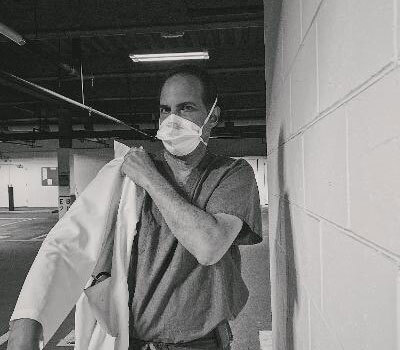
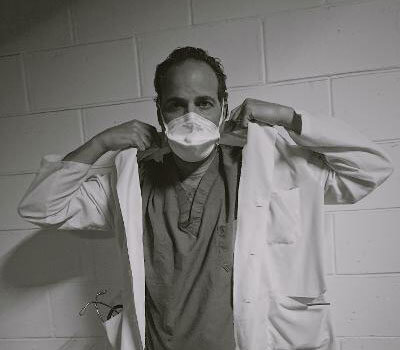
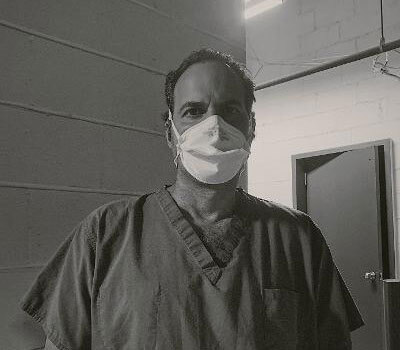
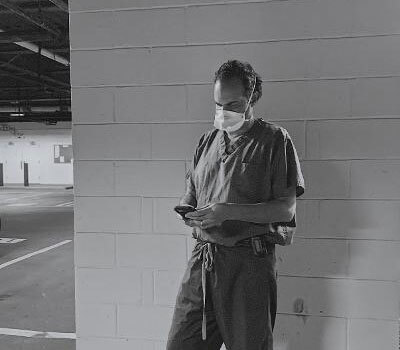
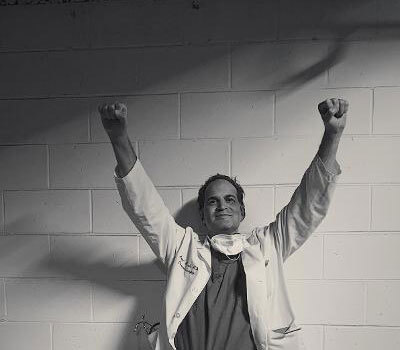
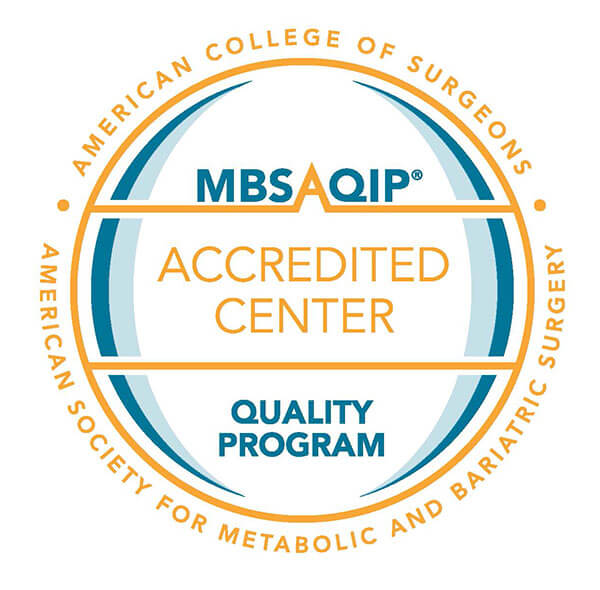
The American College of Surgeons (ACS) and the American Society for Metabolic and Bariatric Surgery (ASMBS) created a single unified program; MBSAQIP works to advance safe, high-quality care for bariatric surgical patients through the accreditation of bariatric surgical centers. A bariatric surgical center achieves accreditation following a rigorous review process during which it proves that it can maintain certain physical resources, human resources, and standards of practice.
People lose 60% of their extra or excess weight because the stomach is made smaller. The laparoscopic gastric sleeve is performed with a scope through 5 small incisions. The surgery lasts one hour and patients remain in the hospital for one day.
The surgery reduces the amount of food that can fill the stomach by 80% of the stomach. The stomach is molded into the shape of a banana. A tube is placed down the stomach and stapling is performed along the tube. A large portion of the stomach is removed.
Patients have less of the hunger hormone ghrelin. They grow healthy gut bacteria, and the bile in the blood increases.
Patients lose 70% of their extra or excess weight with this procedure. The laparoscopic Roux-en-Y gastric bypass Is performed using a scope that is placed through one of 7 small incisions. The surgery lasts for 2 hours and patients remain in the hospital for 2 days.
During the surgery, the stomach is divided but not removed. At first a small stomach pouch is created that is the size of a lime. The small bowel is normally 600cm long and the second step of the surgery is to divide the bowel at 50 cm. The small bowel is then attached to the stomach pouch with staples and stitches. The small bowel is measured 150 cm from the attachment to the stomach and reattached to the small bowel.
Patients lose weight because they eat less and get full quicker. They also develop faster metabolism. Patients produce less of their hunger hormones such as ghrelin. They develop healthy gut bacteria and have increased bile in their blood which further causes weight loss.
This procedure is performed on patients who have already had a gastric bypass but have regained weight or have not lost enough weight after their first surgery. The long limb bypass is performed with a scope through 7 incisions. Patients remain in the hospital for 2-3 days. At first, the stomach pouch is reduced in its size and then the bile limb of the bowel is increased in length.
Then the length of the small bowel bypass is increased from 150 cm to 300cm. When this is performed, patients have an additional benefit of malabsorption of some of the food that they eat. Patients may lose an additional 40% of their extra or excess body weight. The surgery may last from 2-5 hours depending on the patient’s previous surgery.
The lap-band is a silicone band that is placed with a scope and 5 small incisions. It is placed around the top of the stomach 2-3cm from the esophagus and stomach connection. The band is adjustable as the inner tube is filled at weekly and monthly visits to tighten the band. The band can be loosened easily at an office visit. The surgery takes less than one hour and patients may go home the same day.
learn more about the gastric bandThe gastric balloon is a device that is placed in the stomach by swallowing or inserted with the help of an endoscope. Patients may go home the same day. They may have nausea for 3 days. The balloon remains for 6 months and then is removed. The average patient loses 22 pounds. Dr. Neil Floch was instrumental in developing a bill in the Connecticut state legislature to increase access for obesity surgery care.
learn more about the gastric balloon

